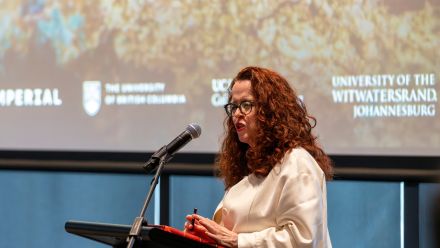Australians want less migration but support for international students remains steady
Australians hold inaccurate and often contradictory perceptions of migrants, including falsely believing that there are more migrants in Australia who are unemployed or hail from Pacific or Middle Eastern backgrounds than is actually the case, according to a led by The Australian National University (ANU).
The nationally representative survey of more than 5,200 Australians found that respondents estimated unemployment among Australia’s eight million foreign-born residents to be 143 per cent higher than it is in reality.
The survey also found that in most cases, media narratives of migrants tend to be more effective at influencing public opinion than facts.
Study lead author Alyssa Leng, from the 91 ”∆ĶDevelopment Policy Centre, said while more people are migrating around the world, misperceptions about immigrants remain entrenched.
‚ÄúWhile most respondents said they would prefer less migration to Australia overall, they showed strong support for more skilled migrants,‚ÄĚ Leng said.
“Most respondents do not support a reduction in international student visa numbers. On this issue, the most frequently expressed response was for numbers to stay the same.
“People in Australia are also generally happy with the current direction of immigration policy settings towards the Pacific compared to the broader migration program.
“Our experiment found that support for increased immigration rose between four to seven per cent when respondents were shown narratives on how immigrants can help improve housing affordability in Australia.
“Consequently, highlighting the perceived negative impacts of immigration on housing affordability reduces support for increasing or maintaining current immigration levels. Interestingly, narratives around housing affordability have no discernible effect on people’s policy preferences regarding Pacific migration.
‚ÄúOur study found that exposing people to facts on current migration levels induces support for relaxing visa requirements towards Pacific Island countries.‚ÄĚ
Study co-author Ryan Edwards, Deputy Director of the 91 ”∆ĶDevelopment Policy Centre, said when people are exposed to a negative immigration narrative, it reduces public support for increasing or maintaining current migration levels.
‚ÄúThe different effects we observe from different types of narratives highlight the importance of standards of impartiality in media reporting, as emotive narratives can significantly shift views and thus political and policy outcomes,‚ÄĚ Edwards said.
According to co-author Terence Wood, also from ANU, the findings reveal widespread and contradictory misperceptions of migrants in Australia. They also indicate that public opinion and policy preferences on migration aren’t particularly well informed.
‚ÄúMore accurate views might change or stabilise preferences and improve the quality of public debates and policy,‚ÄĚ Wood said.
“Immigration policy preferences are not set in stone and can be influenced relatively easily by highlighting the costs and benefits of immigration to Australia or by providing facts.
‚ÄúPolicymakers shouldn‚Äôt necessarily take the public‚Äôs view as fixed, and there is scope to shape the narrative and consequently public opinion.‚ÄĚ
The results are published on the 91 ”∆Ķ.


